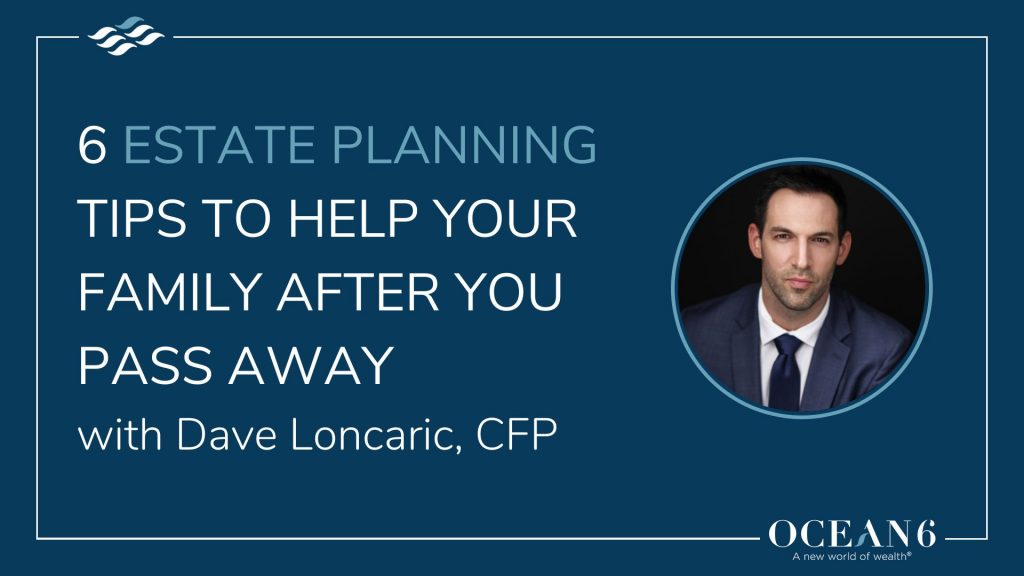When you realize the biggest tax bill you will ever pay is at death, you will not want to put your estate plan on the back burner. Estate planning often gets overlooked until it is too late. It’s essential to protecting your legacy and loved ones’ well-being.
Let’s make sure you’re proud of the legacy you leave behind, and it’s done according to your wishes.
The Initial Steps to Setting up Your Estate Plan
Estate planning involves making important decisions about our assets, beneficiaries, and the legacy we leave behind. Having an estate plan in place will make things easier for everyone. What is already a difficult time for your loved ones should not be made even more complicated than it is.
Step One
Having a will is an important first step.
A will outlines your wishes on the distribution of your assets after you pass away. It provides everyone with clarity about who you want to inherit your wealth, reducing unnecessary disputes between family members.
Without a will, the government will decide how your assets are distributed, which may not align with what you had in mind.
Step Two
Picking the right executor is just as important. They are responsible for administering your estate and executing the terms of your will. You want someone trustworthy and capable of processing the will during an emotionally taxing time.
Step Three
Decide who you want to leave your estate to in your will. This starts with identifying your assets and liabilities. Document all your assets, such as real estate, bank accounts, investments, vehicles, and personal belongings, as well as your liabilities, including debts like mortgages, loans, and taxes owed, to clearly understand your financial picture.
If you’re married, most of your estate will be transferred to the surviving spouse by default. For example, if you have joint accounts and assets, the surviving spouse will automatically inherit them. They are entitled to a portion of the estate under provincial laws but will not have the same entitlement if you’re not married to your partner.
If you want to name your children as beneficiaries and they are minors, the executor will hold their inheritance in a trust until they are 18.
The distribution of your estate is not just limited to your family. You can also leave your estate to charity.
(There are a lot of misconceptions about estate planning. Here are three things you wish you knew)
The Tax Considerations of Securing Your Legacy
We all want to keep as much of our hard-earned money for our loved ones as possible and not leave it in the hands of the government. When you pass away in Canada, the government will tax your estate before giving anything to your beneficiaries. As a result, there is no inheritance tax because it’s already been taxed.
Here are a few ways you can plan to ensure your wishes are carried out, and your loved ones receive as much as possible.
- Gifting assets during your lifetime can help reduce the size of your estate, strategically lowering probate fees and taxes down the road. Here is an example: let’s say you purchased a vacation property for $1,000,000 back in 2000, and you want to gift this property to your child. It is currently worth $1,500,000, with expectations of an increase in value in the coming years. If you gift it to your child now, it will generate $500,000 in capital gains. However, if you pass down the property to your child in your will and the property is worth $2,000,000, the capital gain would be $1,000,000. Gifting it now may save on higher capital gains tax if the property value increases.
- Another effective estate planning strategy to save taxes is using trusts. Trusts can help with income splitting, estate equalization, reduced probate fees, and asset preservation. (Learn four ways a family trust can help you pass your legacy to future generations while providing major tax advantages)
- Corporate-owned life insurance is a tax-efficient tool for estate planning in Canada. It’s also a strategic way to get money out of the corporation tax-free. The death benefits from corporate-owned life insurance policies are paid out tax-free to the beneficiaries. The payout can help equalize an estate, cover taxes, and provide funds to your beneficiaries without going through probate.
Watch the video on this topic
It’s important not to view estate planning as just a way to manage your assets; it’s about securing your legacy and providing for your loved ones after you’re gone. (Looking for more tips on estate planning? Here are six more!)
Book a call and start planning your estate today to ensure peace of mind for yourself and your loved ones in the future. Your estate plan should align with your full-picture financial plan, so all areas of your finances work together to help you achieve your biggest goals.




